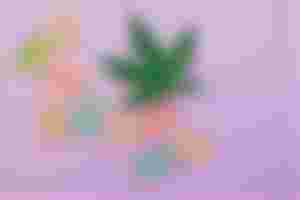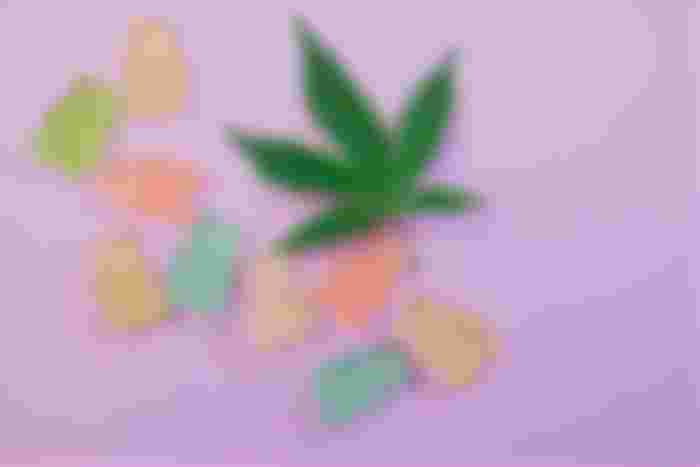The sweet pleasure of sugar: The drug of the 21st century, a cultural addiction?

Let's be honest! Who of us who keep in our memory the delight of a sweet nectar can banish it from our lives overnight? Yes, that mundane pleasure that envelops us in that inexplicable state of joy that we usually reach as soon as our taste buds are impregnated with a syrupy potion! Adam would say that because of the wayward Eve, a bite of that sweet apple that ended up taking them out of the promised paradise- But, for God's sake, let's not exaggerate, it was just a little bite- Of course, there are sweets and sweets in this vineyard of the Lord, and not everything that seems a harmless little bite ends up being so!
This article started by asking you to "speak honestly", and that's what I'm going to do. So I ask you, who of us here doesn't love sweets, who doesn't remember the best moments of their childhood immersed in sweets, who had a birthday without the joy of a sweet cake, who has tried to get rid of that "sweet company" from their lives without any success... Let's face it, the sweet taste is part of our genesis! Not for nothing is it the only "flavor" that different cultures and ethnicities worldwide associate with greater pleasure.
There should be nothing wrong with enjoying the sweet things in life. Perhaps, however, if we had settled for "the apple" to satiate us! But no! No sooner had we set foot out of paradise than we were bombarded with a barrage of cloying "foods" making our sweet tooth more voracious by the day.
And then, what was that pleasure of the gods shared with us: these mere mortals, today, is nothing more than a cultural addiction instituted globally! Yep, we are addicted to sugar! That's the truth!
The serious problem is that this addiction is taking the lives of many people worldwide. Because, the truth is that diseases related to the excessive consumption of sugars are not only related to "diabetes" - many people are fooled into thinking that they do not have a problem with sugar because they are not diabetics - as if diabetes were the only disease in the world that one should think about when it comes to taking care of oneself from the onslaught of sugar!
The truth is that the excessive consumption of sugars has terrible consequences for the normal functioning of our cells, and therefore for our organism. Of course, our cells need "glucose" - as blood sugar is called - to generate the energy that drives our complex machinery. However, just as our healthy cells feed on the glucose necessary for their good performance, other microorganisms, such as dangerous bacteria and even our own degenerated cells, as in the case of cancer cells, also feed on glucose.
So it is easy to conclude that an excess consumption of sugars, and in particular of all those "refined carbohydrates", could lead to possible complications in our health due to its relationship with cellular malfunction that has already been widely demonstrated at a scientific level.
But then how could we continue consuming sweet foods to satiate our cultural addiction for that pleasant taste without this managing to dent our health?
Well, the first thing we should review is our daily sugar consumption levels, -we speak of sugar not only to refer to white table sugar, but to all those carbohydrates, and especially refined carbohydrates- which as we already know are the main foods to take into account to consume them in a conscious way if we seek to enhance our health and thus prolong our life without diseases preventing us from enjoying it to the fullest.
If one does a brief search on the web in reference to the recommended daily consumption of carbohydrates in general and specifically in white table sugar, we will find the following:
Regarding carbohydrates: "The recommended daily amount is 3-5 g/kg body weight. One gram of carbohydrates will provide you with 4 kcal. They should represent 50-55% of the calories in your diet." Source: Google
As for table sugar: "The WHO recommends taking no more than 25 grams of free sugar a day, "This would be equivalent to about 6 teaspoons coffee type or 6 sugar cubes" Source: Google
Obviously, these data serve as a standard reference to take into account, however, ideally, we can have a personalized analysis of our requirements of both macronutrients and micronutrients. For this, the most advisable is to have the advice of a health professional who can perform the corresponding analysis and based on this, make the necessary modifications taking into account our physical condition and each of our particularities. Obviously, this should be based on the amount of carbohydrates to be consumed daily.
In the specific case of white table sugar, let's be honest, I think it doesn't take a health professional to tell you if your daily sugar intake is getting out of control! Just for fun, start adding up all the grams of sugar in each of the foods you eat every day. A good example would be to add up the grams that appear on the label of your beloved and very sugary carbonated beverage of choice: Coca Cola, Pespsi, Seven UP, among others.
Taking Coca Cola, the drink of "happiness" as a reference, our friend Google points out:
Coca Cola contains for each can of 330 milliliters, approximately 39 grams of sugar, which is equivalent to almost 10 sugar cubes, something not minor that brings 150 calories in a small portion that we can easily repeat.
Taking into account what was previously stated by the World Health Organization, in reference to the recommended daily sugar intake, it is evident that only one can of soda exceeds by far the recommended 25 grams, equivalent to 6 teaspoons of coffee or sugar cubes.
The seriousness of this is that many people do not ingest a single can of soda, sometimes they drink several cans or glasses a day. To this we should add all the other grams of sugar contained in the rest of the products consumed daily, not to mention those foods such as fruits with a high vitamin intake, but which still contain a good amount of fructose, which is also present in industrialized products such as corn syrup, which are added as sugar substitutes to a large number of mass consumption foods.
The alarming conclusion that one can reach after facing the reality to which we are exposed with the consumption of sugar worldwide is that despite the fact that it behaves like another drug in our organism causing a great addiction, its consumption has been culturally accepted without major consequences.
Beyond the "recommendations" from organizations such as WHO, on a reduction of its intake by the consumer, there is nothing to limit the use of this by large food corporations that produce a large number of products to which "sugar" is added, without these being necessarily indispensable, just for the simple fact of inevitably generating an almost immediate dependence on the consumption of these products.
When sugar is ingested, an enormous secretion of dopamine is secreted, which acts on the brain, stimulating ingestion. That is to say, the more sugar we eat, the more we want to eat it again, with the aggravating factor that to achieve pleasure, we will need to consume a greater quantity each time. Source: cardenessalud.
So the truth is that the industry keeps us hooked on everything to which it adds sugar just to generate in us an addiction that in the end translates into huge profits for them and a great loss for us in terms of our health and longevity.
Several scientists consider it very likely that sugar acts in the human brain just as alcohol, cigarettes and cocaine do, hijacking gratification pathways and causing dependence. Highly processed and refined carbohydrates, such as white bread and sugar, alter brain activity in such a way that they make us crave them even more, causing addiction-related symptoms. Source: cardenessalud
Let's face it, we are sugar dependent! This is why we must treat this addiction with the importance it deserves and find a way to deal with it by taking corrective measures. And like all addictions, we must be very clear that it is not easy to give up sugar consumption overnight.
This is a process that must be approached, little by little, if we want to have good results. So let's start with small steps: maybe the morning coffee is no longer two teaspoons of sugar, but one; or no longer buy the soda or any sugary drink to accompany the daily meal; the snack is no longer the donut or cake, but a moderate portion of fruit .... In short, every small change you can make to avoid excessive sugar consumption will be a big step towards your definitive change to a new life free of what is undoubtedly the sweet drug of the 21st century, and one of our biggest cultural addictions.
Just so you don't get too caught up with the idea of taking the grams of sugar out of the products you consume, here is a link to an interesting project that I found while researching for this article and that I found useful because the consumer can quickly visualize the amount of sugar contained in some processed foods.
It is very easy to see the amounts beyond the grams, since here are placed the photos of the products and next to them a column with the sugar lumps that each one contains. I must say that at first glance I was struck by a large wall with numerous columns of sugar that stood out from the rest of the photos because of its large size.
To my surprise, that wall of sugar ended up belonging to a colorful and harmless "gummy bear", but how could it not, what could surprise me! Children will be the adults of the future, but if we continue as we are going, unfortunately, they will end up being the addicts of tomorrow!

Here is the link so that if you like you can take a look at those mountains of sugar lumps in some products www.sinazucar.org
And here is an entertaining list of 73 different ways to mask the sugar on the labels of the products we consume, here the important thing is to recognize the enemy even if it is camouflaged!
1) Agave-2 )Carob-3 )Refined white sugar, ground or powdered- 4) Cane sugar- 5) Castor sugar- 6)Coconut sugar- 7)Date sugar- 8)Fruit sugar- 9)Palm sugar (plain or coconut palm) 10) Confectioner's sugar- 11) Icing sugar, 12) Invert sugar - 13) Refined brown or whole sugar - 14) Blonde sugar - 15) Raw sugar - 16) Turbinado sugar - 17) Caramel - 18) Fruit juice concentrates - 19) Confectionery - 20) Crystals - 20) Candies - 20) Sugared sugar - 20) Sugar confectionery - 21) Sugar confectionery 19) Confectionery- 20) Cane juice crystals- 21) Fluoride crystals- 22) Dextrin- 23) Dextrose- 24) Diastase- 25) Diglycerides- 26) D-ribose- 27) Corn sweetener- 28) Ethyl maltol- 29) Fructose- 30) Galactose- 31) Glucose- 32) Isomalt-33) Maple syrup- 34) Rice syrup-35) Carob "Ceratonia Siliqua" syrup-36) Glucose syrup-37) Corn syrup-38) High fructose corn syrup-39) Malt syrup-40) Butter syrup-41) Maple syrup-42) Sorghum syruo-43) Refined syrup-44) Cane juice or evaporated cane juice-45) Grape juice or concentrated grape juice-46) Lactose- 47) Barley malt-48) Diastatic malt-49) Maltodextrin-50) Maltose-51) Mannitol-52) Molasses-53) Black molasses-54) Rice molasses-55) Honey- 56) Cane honey-57) Corn honey-58) Malt honey-59) Fruit nectar-60) Concentrated fruit puree-61) Beetroot-62) Saccharose- 63) Golden syrup- 64) Glucose solids- 65) Corn syrup solids- 66) Sorbitol- 67) Sucanat- 68) Sucralose- 69) Sucrose- 70) Syrup or refined syrup- 71) Xylitol- 72) Xylose- 73) Zylos.
{ *REMEMBER* }

Before I go I'd like you to leave me in the comments how you feel about your daily sugar intake, and if you think you're abusing it what measures would you be willing to take today to start lowering the amount of daily intake!
Hope to see you next Monday, of Challenges and Changes 💪😃! where we'll tackle another interesting topic that makes us reflect on those things we should change to be that better version of us!:
::::::::*Let's not be afraid! :::::::*:::::Let's challenge ourselves to see who wins!::::*
:::::::::::::::::::::::::::::::::::::::::::::::::(*AMA-T*):::::::::::::::::::::::::::::::::::::::::::::::::::::
::::::::::::::::::::::::::::::::::::::::::::(*LOVE YOUSELF*):::::::::::::::::::::::::::::::::::::::::::::::
For the moment I say goodbye, but not before telling you that here I will be writing articles about wellness, physical, mental and spiritual health, and all those topics that can help us to fall in love every day more of these avatars🕴👯 that we had to be in this Matrix 👾 🤖 so fun and unique in which we live!
Greetings to all, an online hug from Venezuela🙂✌️ !
...and remember first of all just love yourself !





Pleasure is likened to sugar or sweet food, while honesty is likened to bitter food or eating poisoned food, sometimes in our lives it is difficult for other people to tell the truth, because they all know, if they are honest, it will end with a bitter taste for themselves. and other people. therefore telling the truth is something that is very difficult that other people may not be able to do.